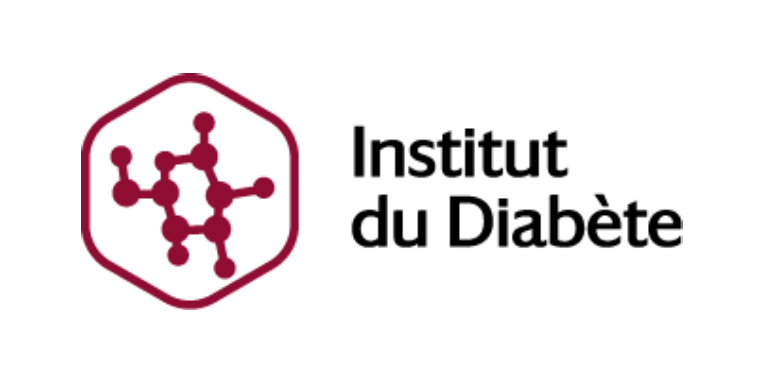T-cell tolerance, biomarkers and therapies in type 1 diabetes
Our goal is to understand the immune pathogenesis of type 1 diabetes. We aim to develop immunological monitoring and intervention protocols for the diagnostic classification, treatment and prevention of the disease.
PI: Roberto MALLONE & Sylvaine YOU
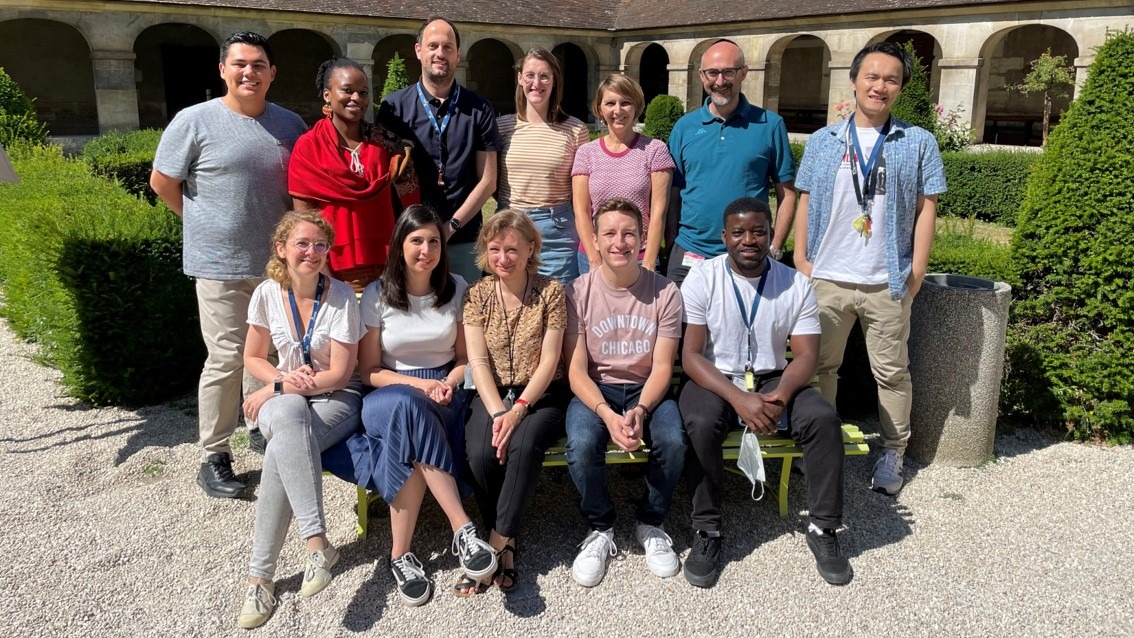
Lorem ipsum
Dolor sit amet, consectetuer adipiscing elit, sed diam nonummy nibh euismod tincidunt ut laoreet dolore magna aliquam erat volutpat. Ut wisi enim ad minim.
© Lorem ipsum dolor sit amet, consectetuer adipiscing
The general objective of our Laboratory stems from the increasing appreciation that type 1 diabetes (T1D), which results from the autoimmune destruction of insulin-producing pancreatic beta cells, is a heterogenous disease. It involves both immune and beta-cell components, with multiple layers of cross-talk. This calls for a novel, integrated view of autoimmunity and diabetes.
Immune mechanisms and biomarkers of autoimmune progression. We have documented a universal state of ‘benign’ autoimmunity present in all individuals, characterized by the circulation of autoreactive CD8+ T cells irrespective of disease status. We therefore aim to understand the biomarkers distinguishing these benign vs. pathogenic T cells, and the mechanisms and environmental triggers driving their transition from one state to another.
Development of novel immune modulatory and beta-cell protective therapeutics. Therapeutic development needs to cover both aspects of this immune-endocrine cross-talk. In-vitro and in-vivo platforms to study this cross-talk are developed. Non-invasive mucosal vaccination strategies with Fc-coupled beta-cell antigens are under study in mouse models for T1D prevention.
Main publications :
1: Carré A, Richardson SJ, Larger E, Mallone R. Presumption of guilt for T cells in type 1 diabetes: lead culprits or partners in crime depending on age of onset? Diabetologia. 2021 Jan;64(1):15-25. doi: 10.1007/s00125-020-05298-y. Epub 2020 Oct 21. PMID: 33084970; PMCID: PMC7717061.
2: Mallone R, Eizirik DL. Presumption of innocence for beta cells: why are they vulnerable autoimmune targets in type 1 diabetes? Diabetologia. 2020 Oct;63(10):1999-2006. doi: 10.1007/s00125-020-05176-7. Epub 2020 Sep 7. PMID: 32894310.
3: Gonzalez-Duque S, Azoury ME, Colli ML, Afonso G, Turatsinze JV, Nigi L, Lalanne AI, Sebastiani G, Carré A, Pinto S, Culina S, Corcos N, Bugliani M, Marchetti P, Armanet M, Diedisheim M, Kyewski B, Steinmetz LM, Buus S, You S, Dubois-Laforgue D, Larger E, Beressi JP, Bruno G, Dotta F, Scharfmann R, Eizirik DL, Verdier Y, Vinh J, Mallone R. Conventional and Neo-antigenic Peptides Presented by β Cells Are Targeted by Circulating Naïve CD8+ T Cells in Type 1 Diabetic and Healthy Donors. Cell Metab. 2018 Dec 4;28(6):946-960.e6. doi: 10.1016/j.cmet.2018.07.007. Epub 2018 Aug 2. PMID: 30078552.
4: Culina S, Lalanne AI, Afonso G, Cerosaletti K, Pinto S, Sebastiani G, Kuranda K, Nigi L, Eugster A, Østerbye T, Maugein A, McLaren JE, Ladell K, Larger E, Beressi JP, Lissina A, Appay V, Davidson HW, Buus S, Price DA, Kuhn M, Bonifacio E, Battaglia M, Caillat-Zucman S, Dotta F, Scharfmann R, Kyewski B, Mallone R; ImMaDiab Study Group. Islet-reactive CD8+ T cell frequencies in the pancreas, but not in blood, distinguish type 1 diabetic patients from healthy donors. Sci Immunol. 2018 Feb 2;3(20):eaao4013. doi: 10.1126/sciimmunol.aao4013. PMID: 29429978; PMCID: PMC5874133.
Read more

Post Doctoral Position
Fully funded 2-year Post-doctoral position in the team of Dr. Ralf JOCKERS, at Institute Cochin
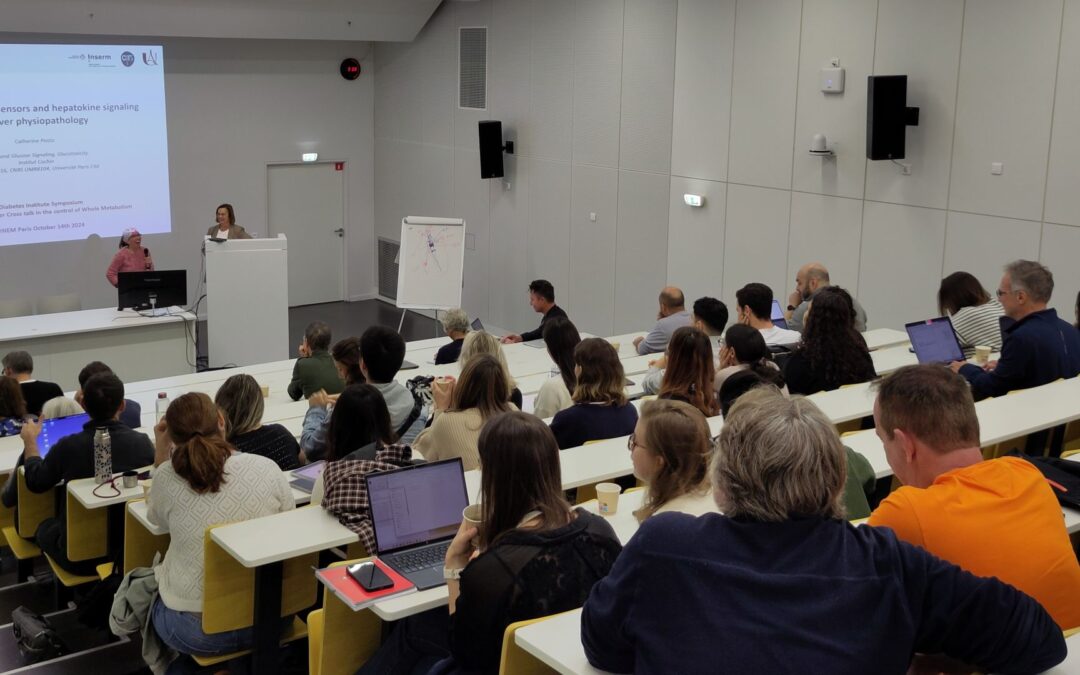
2024 Scientific Annual Day of the Diabetes institute
On Monday, October 14th, the annual Diabetes Institute Scientific Day took place, bringing together around 100 participants at the INEM. Opening of the Annual Scientific Day of the Diabetes Institute Maude LE GALL - Co-Director of the institute (left) Catherine POSTIC...
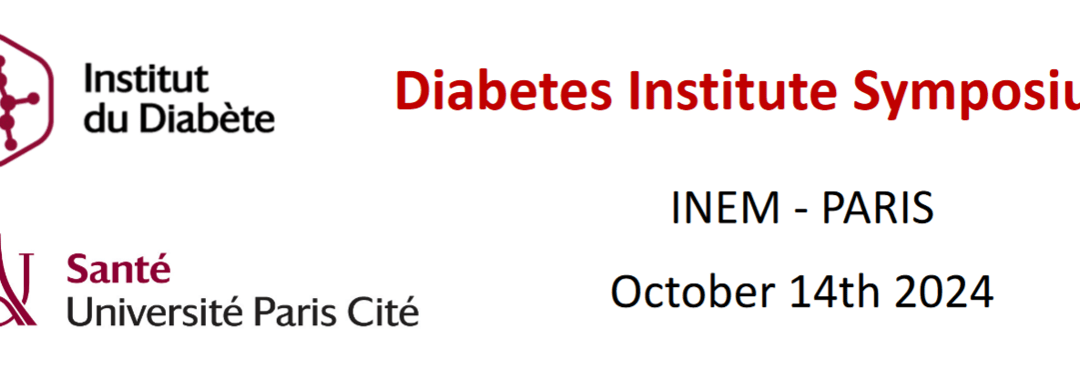
Diabetes Institute scientific day
The overall goal of this Diabetes Institute scientific day is to provide the most important and up-to-date research in the field of metabolism made at University Paris Cité. The workshop will focus on understanding the recent progress in adipose tissue and liver biology including metabolic and inflammatory processes in the control of the energy homeostasis. Special emphasis will be done to highlight the importance of the organ crosstalk and how signaling pathways in one tissue could affect the metabolism in other tissue.
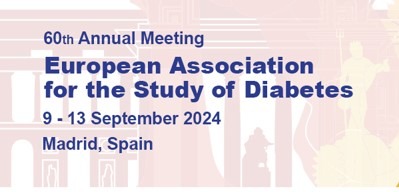
Les jeunes de l’IHM seront à l’EASD
L’IHM Diabète est heureux d’aider les jeunes à participer à l’EASD en leur attribuant une bourse de 1000€
Rendez-vous en Septembre à Madrid !
